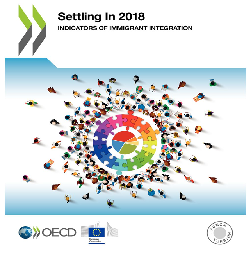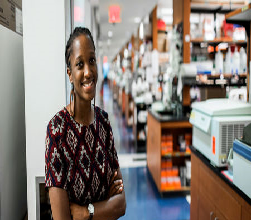January 2019 Research, Science and Knowledge
Read the articles selected in January 2019
How UK scientists are preparing for a chaotic no-deal Brexit
By Elisabeth Gibney
Source: Nature, 17 January

A no-deal Brexit would prevent UK researchers from directly accessing Horizon 2020. The disappearance of a common legislation would trigger legal hurdles for data sharing and clinical trials, while the import of products vital to the scientific sector would be damaged.
Read more:
https://www.nature.com/articles/d41586-019-00191-0
Surprise! Shutdown also disrupting U.S. science agencies that aren’t closed
By Science News Staff
Source: Science, 19 January
The partial shutdown of the U.S. government has hit in unexpected ways also some research agencies whose budget had already been approved, damaging the execution of fundamental functions, such as grantmaking procedures, while the funding of NASA’s postdocs has been blocked.
Read more:
Call for participation in in the 2019 Learning and teaching Thematic Peer Groups
Source: https://eua.eu
This conference aims to focus on recent developments in assessment practices to make them more transparent with an approach open to experimentation but evidence-based, in the perspective to benefit from the advantages and to overcome the challenges given by the internationalisation of curricula design.
Read more:
https://eua.eu/component/attachments/attachments.html?task=attachment&id=1847
Equity in education
Source: http://www.oecd.org/
Educational equity involves the reduction of the gaps related to the socioeconomical condition of the students, helping them develop from early age positive attitudes towards education. Disadvantaged students but equipped with socioemotional resilience do better academically.
Read more:
https://read.oecd-ilibrary.org/education/equity-in-education_9789264073234-en#page1
Journal editor hopes mass walkout quickens open access progress
By Rachael Pells
Source: Times Higher Education, 19 January

The editorial board of The Journal of Informetrics, published by Elsevier, resigned because of a fundamental disagreement with publisher’s policy towards open access, and is planning to launch a fully open access new title.
Read more:
The majority of simplification measures brought into Horizon 2020 have made life easier for beneficiaries, but opportunities to improve still exist
Source: European Court of Auditors
Beside the semplification of norms, procedures and funding schemes, it is also important the stability and certainty of the rules for the access to Horizon 2020. The European Commission has realized support structures that help inexperienced beneficiaries to implement the Programme.
Read more:
https://www.eca.europa.eu/Lists/ECADocuments/SR18_28/SR_HORIZON_2020_EN.pdf
How is students’ motivation related to their performance and anxiety?
Source: oecd.org
In the PISA tests, motivation is an important factor of performances, as it is observed in the most advantaged environments. Otherwise, especially whenever it is based on others’ expectations, motivation can be a source of stress, with a negative impact on the individual well-being and the scholastic success.
Read more:
Is grade inflation weakening the value of higher education?
By Brian Poole
Source: Times Higher Education, 14 January
Although the increase in the credentials of higher education is a positive sign of more democracy, someone fear that an inflation of titles can devalue education, in a time when to find a job it seems that it matters more the vocational aspect of the individual formation.
Read more:
https://www.timeshighereducation.com/blog/grade-inflation-weakening-value-higher-education
The MOOc pivot
By Justin Reich & José Ruipérez-Valiente
Source: Science, 11 January
The revolution promised by the Moocs especially in cases of limited opportunity of access to traditional education has in fact confirmed the existing socioeconomic reality of education beneficiaries. The challenge to bring new learners into higher education depends on the labor market value of the courses.
Read more:
http://science.sciencemag.org/content/363/6423/130
Is internalisation creating inequality in higher education?
By Giorgio Marinoni &Hans de Wit
Source: UniversityWorldNews, 11 January
Equality of education chances is conceived in the public discourse as a means to reduce inequalities of income and wealth. Internationalization of education , as long as contributes to the whole society, risks however to widen gaps between institutions and across the world. This is a problem worth to be deepened.
Read more:
https://www.universityworldnews.com/post.php?story=20190109100925536
High-Level Expert Group on Artificial Intelligence
By the High-Level Expert Group on Artificial Intelligence
Source: European Universities Association
The topic of this paper is the trustworthyness of the A.I. in terms both ethical and of performance. Despite of not expressing the EC’s official position on this point, it lays the foundations for an human-centered approach in the direction of a trust –based relation with the new technologies.
Good Jobs for All in a Changing World of Work
Source: http://www.oecd.org/

The political Strategy for Inclusive Growth is directed in particular to the low- income and low- skilled workers, the groups more at risk of exclusion. Therefore it promotes a growth-friendly environment, flexibility and skills as the layers of resilience in rapidly changing labour markets.
Higher edcation’s role is to reassert universal values
By Brendan O’Malley
Source: University World News, 16 December 2018
It’s time to leave the perspective of the globalization to shift into a universal dimension, based on the human dignity and ethic values. The challenges of the 2030 Agenda are interconnected and require the multidiscipinary approach, proper of the knowledge produced by the universities.
Read more:
https://www.universityworldnews.com/post.php?story=20181216124727531
How much do graduate students benefit from studying abroad?
By Jeffrey Marvis
Source: Science, 7 January

The importance of studying abroad for graduate students has become a commonplace, based on an evidence rather anecdotal, which doesn’t really explain how and why. A workshop of the National Science Foundation in the USA tries to understand and improve the international research programs.
Read more:
http://www.sciencemag.org/news/2019/01/how-much-do-graduate-students-benefit-studying-abroad
There is nothing impersonal about online learning
By Paul LeBlanc
Source: Times Higher Education, 20 December

Only a quarter of 200 leaders of top institutions asked by a survey of THE, responded that online learning will overcome the traditional campus-based model of higher education by 2030. It seems that the physical presence remains at the centre of student experience, despite the advantages of studying online.
Read more:
https://www.timeshighereducation.com/opinion/there-nothing-impersonal-about-online-learning
Info
- Pubblicato il : 04/02/2019 Modificato il : 04/04/2019

